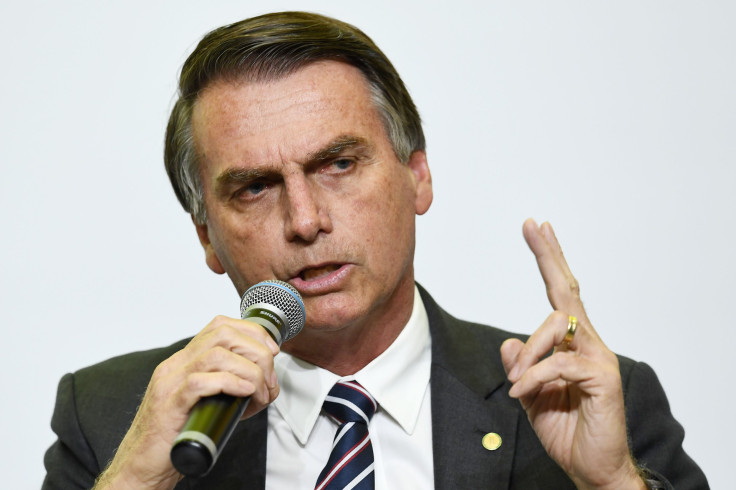Graphic Sex Education Being Taught In Brazilian Schools, Country's Presidential Candidate Claims

Jair Bolsonaro, a presidential candidate for Brazil’s 2018 election, tweeted a picture of himself Tuesday, holding a sex education book for children which contained graphic illustrations.
“One of the books that teach sex to children in schools that Globo did not want to show!” read a translated version of his tweet.
Um dos livros que ensinam sexo para crianças nas escolas que a Globo não quis mostrar! pic.twitter.com/DbwCzUhWJN
— Jair M. Bolsonaro (@jairbolsonaro) August 29, 2018
In the past, Bolsonaro attacked Globo, a free-to-air television network in Brazil, multiple times on various issues. The network was launched in 1965 and is credited with having considerable influence over its country’s public and both political and cultural discourse. It was often criticized for its support of the Brazilian military government in the 1960s and the censorship of pro-democracy developments in its news broadcasts.
The backlash against the Globo Organizations, the media group which owned the TV network, grew to the point where it became a target of the widespread protests in the country in 2013. To pacify its countrymen, Globo released an apology in an editorial published in its Rio de Janeiro-based newspaper.
“The truth is tough. Globo supported the dictatorship,” the editorial said, Los Angeles Times reported. “The wave of protests on the streets ... gave us even more certainty in our internal evaluation that it was necessary to recognize this error.” However, it did not address allegations that it deliberately pushed conservative ideals and suppressed democratic propaganda.
Speaking of books pertaining to sex education in Brazilian public schools, in January 2016, the Ministry of Education (MEC) denied acquiring or distributing the book "Aparelho Sexual e Cia" in education institutions, which according to a video circulated on the social media at the time, contained illustrations which were inappropriate for schoolchildren.
The video claimed that the obscene book, directed toward “early stimulation of children to become interested in sex” was included in the National Book of School Program by the MEC — an allegation the ministry said it had already rebuffed in 2013, when the rumor first surfaced.
MEC further clarified the book was a publication of the publisher Cia das Letras and bore no links to the ministry. "The video that presents the works as being MEC, at no time, proves the linkage of the Ministry to the materials cited, precisely because this link does not exist," the ministry had said in a statement.
It is not clear if the image of the book tweeted out by Bolsonaro was from the same book.
More recently, Brazilian judge Luis Roberto Barroso of the Supreme Federal Court (STF) temporarily suspended a 2016 municipal law in the capital city of Palmas in Tocantins, Brazil, which prohibited the teaching of courses on gender and sexuality in public schools.
Barroso contended that the law was in violation of country's Law of Directives and Education Bases, “which stipulates the respect of liberty, the appreciation for tolerance and the link between education and social practices,” adding that “the more contact students have with different worldviews, the greater the universe of ideas of which they can develop a critical view, and transiting different settings will be more comfortable.”
The motion to veto the law was proposed by Attorney General Racquel Dodge, who argued the ban was against Brazil’s constitution and helped promote a culture of violence perpetrated against the LGBT community, Telesur reported.
In 2011, former Brazilian President Dilma Rousseff suspended the production and distribution of sex education films for schools in Brazil, which contained informative material on LGBT groups, supposed to combat homophobia.
Government spokesperson Gilberto Carvalho said at the time that Rousseff had viewed the footages in the movies and believed it did not offer an objective picture of homosexuality. The decision to suspend it came after evangelical church groups and their allies in Congress threatened to block any future legislation unless the president banned the films, BBC reported.
Meanwhile, Brazil continues to have one of the highest murder rates of members of the LBGT community in the world. An appalling 343 people were killed in crimes linked to their sexual or gender orientations in 2016.
© Copyright IBTimes 2024. All rights reserved.





















